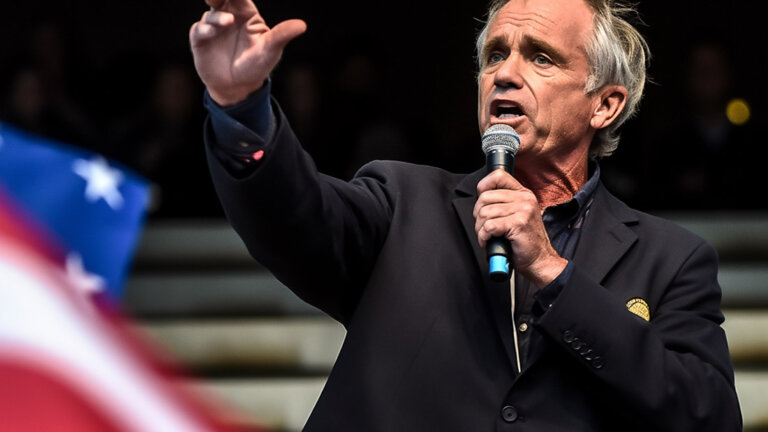 US presidential candidate supports Bitcoin, criticizes CBDCs
US presidential candidate supports Bitcoin, criticizes CBDCs US presidential candidate supports Bitcoin, criticizes CBDCs
There is a growing list of U.S. politicians taking a stand against CBDCs, with many citing risks of financial censorship.

Cover art/illustration via CryptoSlate. Image includes combined content which may include AI-generated content.
U.S. presidential hopeful Robert Kennedy Jr. has supported Bitcoin (BTC) while speaking against central bank digital currencies (CBDCs) in a May 5 Twitter thread.
According to Kennedy, currency digitization has already given the government unprecedented powers to surveil and control economic life. He believes CBDCs would further “magnify the government’s power to suffocate dissent by cutting off access to funds with a keystroke.”
The presidential candidate’s rhetoric against CBDCs is unsurprising, considering he once described them as a tool for “financial slavery and political tyranny.”
Meanwhile, Kennedy said Bitcoin allows people to conduct transactions without government interference. He further described the flagship digital asset as a “lifesaver for people’s movements around the world.”
Governments financially censor their political enemies
Without CBDCs, Kennedy highlighted how governments have financially censored their political enemies. He said this tends to play out under authoritarian regimes, but Western countries like Canada have also adopted this approach.
Kennedy cited examples of how the Canadian government froze the bank accounts of over 200 individuals because of their protests against the vaccine mandate.
According to Kennedy, this event showed that the U.S. could someday freeze an individual’s bank account because of their political views and comments on social media.
“After all, in 2010, Paypal, Visa, and Mastercard suspended WikiLeaks, at the behest of the US State Department,” he added.
Rising anti-CBDC stand
Meanwhile, a growing list of U.S. politicians has taken a stand against CBDCs, citing the risk of financial censorship.
Several U.S. states like Florida, North Dakota, and North Carolina have introduced bills to ban the national digital currency. Senator Ted Cruz also introduced a bill to ban the Federal Reserves from issuing this currency.
While several crypto community members have lauded this ban, some stakeholders have warned that the anti-CBDC moves could hurt Bitcoin. The Bitcoin Policy Institute wrote that South Dakota Governor Kristi Noem’s decision to veto a CBDC bill affected BTC.
According to the Institute, the bill contained provisions that expanded the definitions and protections for Bitcoin. Besides that, it also created a legal mechanism that recognizes self-custody and the protocol’s inclusion in traditional lending, insurance, and commercial transactions.



 Farside Investors
Farside Investors 


 CoinGlass
CoinGlass 























































































